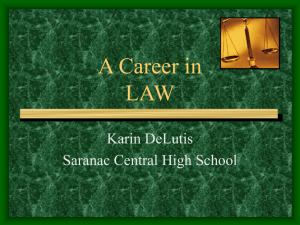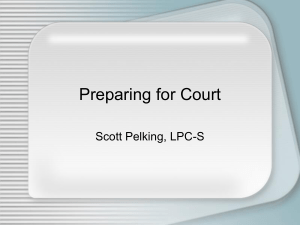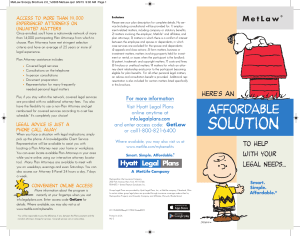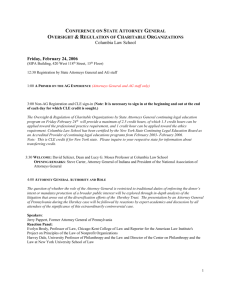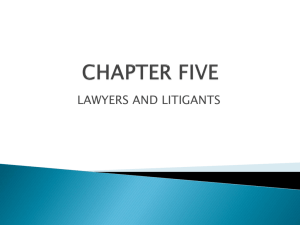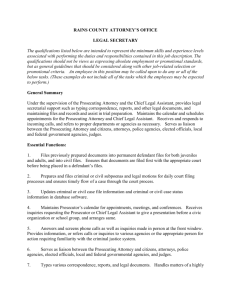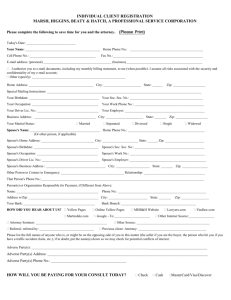PowerPoint - Marquette University Law School
advertisement
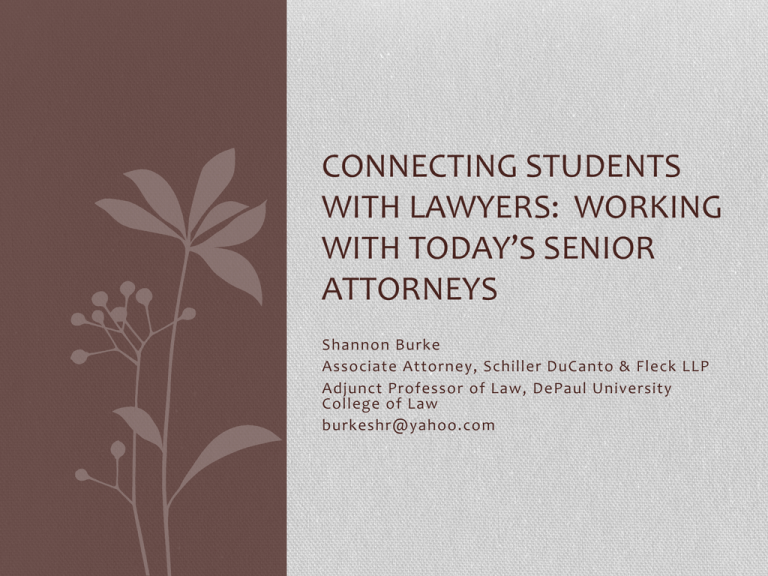
CONNECTING STUDENTS WITH LAWYERS: WORKING WITH TODAY’S SENIOR ATTORNEYS Shannon Burke Associate Attorney, Schiller DuCanto & Fleck LLP Adjunct Professor of Law, DePaul University College of Law burkeshr@yahoo.com What we will cover today • Reminding students what senior attorneys expect. • Discussing ways we can teach students how to meet and exceed those expectations. • Giving the students a confidence boost. • Expectations What do senior attorneys expect of new(er) associates? What to do at the first (and often only) meeting with the senior attorney • • Bring a pen and paper Understand the assignment • • • • • • Repeat what you hear the senior attorney asking you to do (which may be different than what the attorney thinks s/he is asking you to do). Learn the substantive goal of the assignment. Learn how the senior attorney will use your assignment (ex: copy and paste your boilerplate language, have you find cases that support our argument or that the other side might use, make “out of the box” arguments, etc.). Demonstrate client-cost awareness: How much time should you spent on the project? When is the assignment due? Request and/or obtain the required documentation (ex: if you are drafting the Response to the Motion for Summary Judgment, you will want to get a copy of the Motion for Summary Judgment). Expectations What do senior attorneys expect of new(er) associates? • Performing quality and cost-effective legal research • Cases that are in your favor • Cases that need to be distinguished – and then distinguishing them • Drafting basics • Include the question the senior attorney asked you to answer • Include a clear and precise answer • Then give the legal support • Draft documents that need minimal substantive revisions • Draft documents that require NO grammatical revisions Expectations What do senior attorneys expect of new(er) associates? • Many times, the senior partner will call the new(er) associate from court and need caselaw, statutes, or court rules – quickly! • Should you email the information as an attachment from Westlaw/Lexis? • Should you draft a short email with the one word/sentence answer? • Should you draft a lengthy explanation? • Orally communicating your results • Expectations What do senior attorneys expect of new(er) associates? Repeat what the senior attorney asked you to do. Explain your research results (positive and negative). Clear, concise, precise • • • Following-up with the senior attorney • Before the assignment is due: • • • • Clarify your assignment Explain pitfalls, tangential issues that you found that may be relevant, etc. Be sure you are researching/drafting what is required After the assignment is due: • Ask if you will need to draft a reply in support of your motion (or other similar document) so you can budget your time appropriately • Displaying “professionalism” Expectations What do senior attorneys expect of new(er) associates? • In the office • At court • Bar association functions • Community involvement • Exchanges with clients • Formal writing • Emails • Texts Incorporating lessons into the classroom • Mock “initial” meeting • Orally give students the assignment • Gentle critique • Hand out written assignment at the end of the meeting • Mock “presentation” meeting • Have your student orally present his or her research to you. • Have your students email you! • Different formats • General, every day, professional interactions • Short emails (i.e., sending a partner an email while s/he is in court) • Lengthier emails (i.e., thoroughly but concisely answering a question) Something “extra” that new(er) associates bring • Although the new(er) attorney has much to learn, s/he also has much to teach! • Our students have grown up with home computers, the internet, email, texts… • Senior attorneys will want to capitalize on new(er) attorneys’ high comfort level with these technologies • Ex: • Firm website creation • Linked In • Twitter • Facebook • Blogs • Articles • Short videos • Other forms of social media marketing THANK YOU! Shannon Burke Associate Attorney, Schiller DuCanto & Fleck LLP Adjunct Professor of Law, DePaul University College of Law burkeshr@yahoo.com


